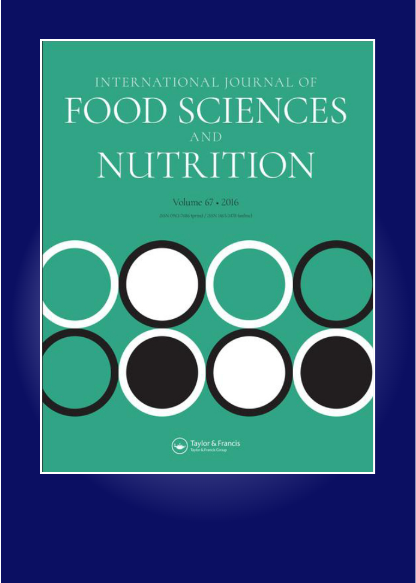辣椒作为一种功能性食品:与莱索托的关系
IF 3.5
2区 农林科学
Q2 FOOD SCIENCE & TECHNOLOGY
引用次数: 0
摘要
目的:虽然在莱索托,辣椒作为功能性食品的使用并没有很好的记录,但它们的生产和消费有着丰富的历史背景。功能食品是指除营养外还具有治疗作用的食品。先前的研究支持食用辣椒的许多健康益处,包括它们有可能降低患癌症、心律失常、风湿病和胸部感冒的风险。然而,这些概念尚未转化为政策和执行战略的切实改变。因此,本综述旨在确定辣椒、食品和治疗性食品开发的潜在研究课题;方法:本文对辣椒作为功能性食品的现有数据进行了文献分析,特别强调了辣椒对莱索托这个发展中国家的适用性。研究结果:根据对审查研究的分析,可以推断,那些经常在饮食中加入辣椒的人与那些不这样做的人相比,死于非传染性疾病的风险降低了。对理论、实践和政策的独特贡献:本综述中提出的数据支持辣椒作为功能性食品的分类,同时也强调了调查辣椒的有效性、安全性、质量、开发和可能危害的重要性,特别是在莱索托等发展中国家。本研究具有很大的潜力,为辣椒、非传染性疾病和死亡率之间的关系提供新的全球视角,以指导未来的研究。因此,未来的研究必须通过更多的临床研究来彻底检查辣椒的独特影响。此外,本综述和进一步的研究将有助于修订莱索托膳食指南和推进功能性食品,如从辣椒中提取的草药补充剂。本文章由计算机程序翻译,如有差异,请以英文原文为准。
Chili Pepper as a Functional Food: Relevance to Lesotho
Purpose: Although the use of chili peppers as functional foods in Lesotho is not well documented, their production and consumption have a rich historical background. Functional foods are those that serve as therapeutic agents in addition to nutrition. Previous research supports the many health benefits of consuming chili peppers, including their potential to mitigate the risk of cancer, cardiac arrhythmias, rheumatism, and chest colds. Nevertheless, these concepts have yet to translate into tangible alterations in policies and implementation strategies. Therefore, this review aims to identify potential topics for future research on Chili peppers, food, and therapeutic food product development; to improve the population's health and well-being
Methodology: This paper presents a literature analysis of existing data on chili peppers as functional foods, specifically emphasizing their applicability to Lesotho, a developing country.
Findings: Based on the analysis of the reviewed research, it can be inferred that those who regularly incorporate chili peppers into their diet exhibit a decreased risk of death from non-communicable diseases compared to those who do not.
Unique Contribution to Theory, Practice and Policy: The data presented in this review supports the classification of chili pepper as a functional food while also emphasizing the importance of investigating the effectiveness, safety, quality, development, and possible hazards of chili peppers, particularly in developing nations like Lesotho. The present study has great potential to provide novel global perspectives on the associations between chili peppers, non-communicable diseases (NCDs), and mortality to guide future research. Hence, future research endeavors must thoroughly examine the distinct impacts of chili peppers through more clinical studies. Moreover, the present review and further research will contribute to revising Lesotho’s dietary guidelines and advancing functional food products, such as herbal supplements derived from chili peppers.
求助全文
通过发布文献求助,成功后即可免费获取论文全文。
去求助
来源期刊
CiteScore
7.50
自引率
2.60%
发文量
60
审稿时长
1 months
期刊介绍:
The primary aim of International Journal of Food Sciences and Nutrition is to integrate food science with nutrition. Improvement of knowledge in human nutrition should always be the final objective of submitted research. It''s an international, peer-reviewed journal which publishes high quality, original research contributions to scientific knowledge. All manuscript submissions are subject to initial appraisal by the Editor, and, if found suitable for further consideration, to peer review by independent, anonymous expert referees. All peer review is single blind and submission is online via ScholarOne Manuscripts.

 求助内容:
求助内容: 应助结果提醒方式:
应助结果提醒方式:


